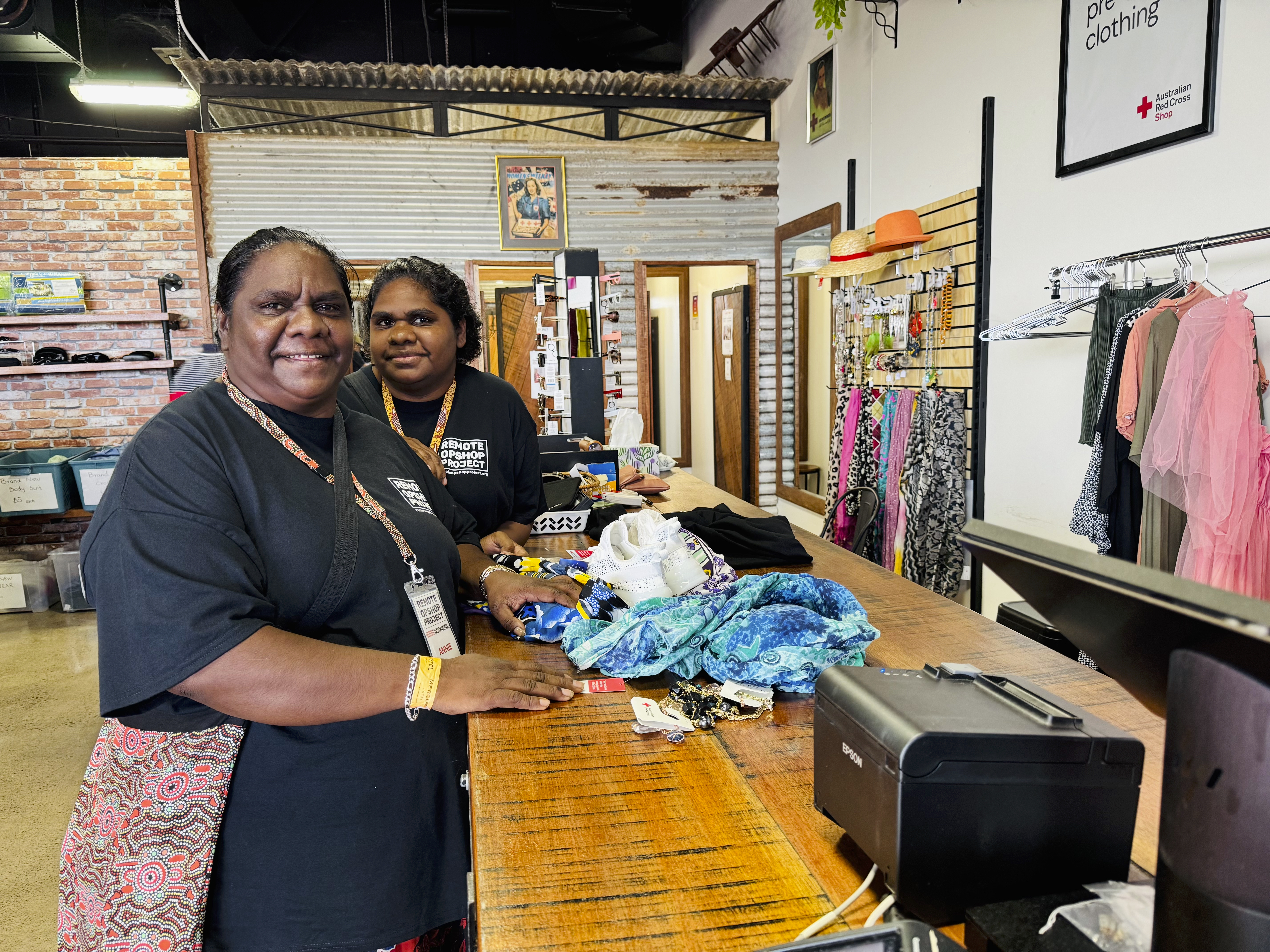In a powerful show of community, leadership and purpose, First Nations women from some of the most remote parts of the country gathered on Larrakia Country in Darwin last week for the inaugural Remote OpShop Project Leadership Gathering. What unfolded was not just a workshop—but a watershed moment for women-led economic empowerment.
The Remote OpShop Project, launched in 2016 in Jilkminggan NT, has grown into a national network of over 40 Indigenous-run community stores. But these aren't just second-hand shops. They are spaces of leadership, healing, and hope—businesses rooted in culture and connection. The shops are led by women, for community, and carry the essence of what true social enterprise looks like on Country.
Throughout the two-day gathering, women from Looma, Urapunga, Fitzroy Crossing, Kalumburu, Bayulu and beyond shared stories of the challenges they've overcome, the dreams they hold, and the powerful impact of these stores in their communities.
Darlene Patrick from Bayulu WA spoke of how her involvement with the opshop gave her the confidence to lead:
"I started doing the opshops in Bayulu, and I started to feel confident about making changes in the community. I told my partner that I'm going to this gathering to listen to other people to bring back those ideas for this community."
Annie Daniels from Urapunga NT reflected on just how significant this project has been:
"In our small communities, there are just families living there, no one else. The first business to come to Urapunga was the opshop. There is never a day when someone comes to the opshop and walks away with nothing in their hand. Seeing someone walk away happy is priceless—it is a really good feeling inside."

For Senior Law Woman Beverley-Ann Lupton from Fitzroy Crossing, the gathering was also about being heard.
"The inspiration, encouragement and knowledge sharing from everyone in our group really was appreciated. People listened to us, and sometimes we don't get that in our community. We love second-hand clothes—they have character, they have a story, someone has loved them, they have feeling," she said.
Elaine Daniels, also from Urapunga, added that her learnings would go beyond the shop
"It's been a wonderful two days, meeting new people and making new friends. I would like to see our opshop help our community, build more young, strong women, and become a role model for the future," she said.
From Looma, Melissa Skinner spoke to ambition and collective growth: "It was an eye opener for me – the challenges we face are the same in other communities too. From little things, big things grow."
Margaret Peurmora from Kalumburu shared how the opshop in her community is inspiring local youth.
"We try and give young people an opportunity to come in and see what we are doing. Two weeks after, they ask, 'when are you going to open that shop again?' We aren't just trying to get their interest—we want to see young people find their goal," she said.

The project, now backed by Social Ventures Australia, Indigenous consultancy Esparq Ventures, and logistics partner Team Global Express, is building the next phase through regional Reuse Hubs—like the new one in Darwin—to better support redistribution of goods and remote access.
But even as the logistics improve, it's the women behind the counters who are driving true transformation. They are the mentors, managers, bookkeepers, stylists, decision-makers—and more importantly, they are matriarchs of modern enterprise, teaching young women that leadership doesn't always wear a suit.
As Tanya Egerton, CEO and Founder of the Remote OpShop Project, put it: "We need the global logistical expertise of big organisations… but we also need the deep knowledge of our First Nations leaders. The opportunities for Indigenous business development up and down this supply chain are limitless."
This project proves what happens when First Nations women are trusted to lead, resourced to build, and backed to dream. They are not only running businesses—they are creating movements, strengthening communities, and paving new pathways for the next generation.
From Country, for Country—these women are rewriting the rules of business their way.
